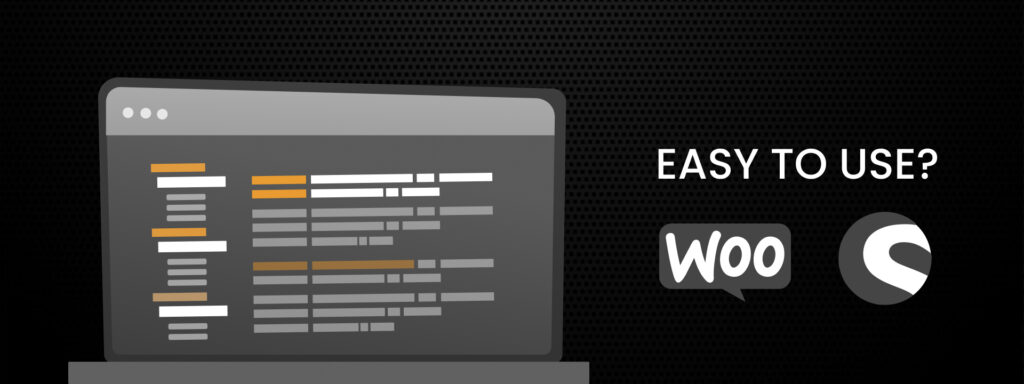The decision between Shopware 6 vs WooCommerce is a common dilemma, with each platform offering a unique set of features, benefits, and potential challenges. In this comprehensive comparison, we will delve deep into these two popular platforms to help you make an informed choice for your online store.
IT Delight, with its robust team of skilled developers and e-commerce experts, offers specialized services to help businesses establish and grow their online presence. Our team can assist you in setting up, optimizing, and maintaining your e-commerce store.
Throughout this article, we will discuss a range of factors, from usability and customization to security and support, examining Shopware 6 and WooCommerce side by side. We aim to provide you with a complete picture of what each platform can offer, helping you choose the most suitable e-commerce solution for your business. So, let’s explore the world of Shopware 6 vs. WooCommerce.
Introduction to Shopware 6 and WooCommerce
Shopware 6 and WooCommerce have emerged as two powerhouse platforms that can take your online store to the next level. Let’s get up close and personal with them.
What is Shopware 6?
Meet Shopware 6 – a top-tier, open-source e-commerce platform hailing from Germany. With a flexible and scalable design, it’s not surprising that it’s won the hearts of numerous businesses, both small and large. By the way, if you need a well-designed custom Shopware 6 theme, we can help you with that.
Shopware 6 comes packed with a myriad of built-in features that are all about helping you create a unique and captivating shopping experience for your customers.

Being a PHP-based platform, Shopware 6 promotes extensive customization options, so you can tailor your online store just the way you like. And with a rich selection of plugins, expanding your e-store’s functionality has never been easier. So, when it comes to providing an impressive shopping journey, Shopware 6 indeed brings its A-game.
What is WooCommerce?
On the other side of the ring, we have WooCommerce, a powerful WordPress plugin that transforms any WordPress site into a fully functional e-commerce store. With its user-friendly approach, WooCommerce has become a go-to platform for many e-store owners worldwide.

WooCommerce provides extensive flexibility and scalability, making it an excellent choice for businesses of all sizes. It comes with a host of features to help you manage your online shop effectively. From an array of customizable themes to its impressive set of plugins and extensions, WooCommerce enables you to design an e-store that truly reflects your brand.
So, there you have it – a brief introduction to Shopware 6 and WooCommerce. The journey of comparing Shopware 6 vs. WooCommerce is just beginning. So, stick around as we dive deeper into the specifics of these two incredible e-commerce platforms and explore how they can benefit your business. Remember, whether it’s Shopware 6 or WooCommerce, IT Delight is here to help you navigate the e-commerce waters with ease and proficiency through our eCommerce consulting services.
Shopware 6 Pros and Cons
Understanding a platform’s strengths and potential drawbacks is crucial when selecting an e-commerce platform that aligns with your business needs. So let’s dive into the ocean of Shopware 6 and examine its product features and certain considerations.

Shopware 6: A Feature-Rich E-commerce Solution
Shopware 6 is not just an e-commerce platform; it’s a rich suite of tools designed to enhance your online store.
- Storytelling Tool: Engaging Customer Experience
At the core of Shopware’s features is the unique Storytelling tool. It allows for an emotionally appealing, interactive product presentation that significantly enhances customer engagement and retention.
- Digital Publishing: Control Over Your E-store Aesthetics
Next is the digital publishing feature. This feature empowers you to design individual pages and layouts without any coding. It combines with Shopware’s extensive customization options to give you full control over your e-store’s aesthetics and functionality.
- Variant Management and Filter Options: Simplifying Product Handling
If you’re dealing with a diverse range of products, Shopware’s variant management and filter options come to the rescue. They make managing and locating products a breeze, no matter how extensive your product range might be.
- Plug-and-Play Functionality: Expanding Functionality with Ease
Lastly, there’s Shopware’s plug-and-play functionality. Boasting over 1000 plugins, it ensures extending your online shop’s functionalities is as straightforward as possible.
Shopware 6 Cons
While Shopware 6 is a feature-rich platform, there are a few considerations worth noting.

- Learning Curve: Requires Some Technical Know-How
The first consideration is Shopware’s learning curve, particularly for those less technically inclined. To leverage the extensive customization possibilities, some technical knowledge is required.
- Plugin Variety: Limited Compared to WooCommerce
Secondly, although Shopware 6 offers a wide variety of plugins, its number falls short compared to WooCommerce. This limitation could restrict your options if you’re looking for very specific functionalities.
- Pricing: Advanced Features Come at a Cost
Lastly, while Shopware 6 does provide a free community edition, its more advanced features are only available in the paid versions. This cost difference could impact the overall running costs of your online store compared to a WooCommerce store.
Your decision should depend on which platform’s strengths align with your business requirements and which cons you can manage effectively. At IT Delight, we’re here to guide you in making the right choice and provide expert services to pave the way for your e-commerce success.
Woocommerce Pros and Cons
Next up on our comparative journey, let’s explore the world of WooCommerce, an e-commerce platform loved by many online store owners. We’ll cover the primary features of WooCommerce, along with some of its potential drawbacks.

WooCommerce: A Versatile E-commerce Platform
WooCommerce is a free WordPress plugin that adds e-commerce functionality to your WordPress website, enabling you to have an online store with just a few clicks.
- Flexibility: Sell Anything, Anywhere
One of the core strengths of WooCommerce is its flexibility. Whether you’re selling physical or digital goods, WooCommerce has got you covered. This flexibility even extends to affiliations and appointments.
- Customization: Make Your Store Uniquely Yours
The extensive range of themes and plugins makes customization in WooCommerce practically limitless. You can tailor your online store’s appearance to match your brand and enhance its functionality to cater to specific business requirements.
- Built-In Blogging: Engage Your Customers
Being a WordPress plugin, WooCommerce comes with built-in blogging. This capability is an excellent tool for SEO, driving traffic, and engaging with your customers.
WooCommerce Cons
Despite the apparent strengths of WooCommerce, there are a few considerations that potential users should be aware of.

- Technical Skills: Not Just a Plug-and-Play
While setting up a basic WooCommerce store is relatively simple, customizing the store to meet specific requirements might require some technical skills. You may need some knowledge of PHP and HTML to tweak your store’s functionality or appearance.
- Dependence on WordPress: Not Standalone
WooCommerce is a plugin, not a standalone e-commerce platform. This means it is wholly reliant on WordPress. If your business doesn’t align with a WordPress-based model, WooCommerce might not be your ideal choice.
- Updates and Compatibility Issues: Potential for Bugs
Another concern is the frequent updates of WordPress and WooCommerce. While regular updates mean better security and new features, they might also cause compatibility issues with your theme or other plugins.
In the ‘Shopware 6 vs WooCommerce’ debate, understanding the pros and cons of each platform helps in selecting the right platform for your e-commerce store. As e-commerce experts at IT Delight, we offer comprehensive support in choosing and implementing the perfect platform tailored to your specific business needs.
Comparing WooCommerce and Shopware 6 Pricing Models
When it comes to choosing an e-commerce platform for your online store, pricing is a critical factor. Both Shopware 6 and WooCommerce offer different pricing models, each with its advantages. Understanding these can help you make a more informed decision that suits your budget.
Shopware 6: A Range of Plans

Shopware 6 adopts a tiered pricing model. The Community Edition is free, providing an excellent starting point for businesses new to e-commerce. As your store grows and requires more advanced features, there are several premium editions available.
Shopware’s Professional Edition starts at €199 per month, and it comes with additional features such as customer streams and digital publishing tools. The Enterprise Edition, designed for large-scale e-commerce operations, has custom pricing. While the initial investment can seem steep, the rich feature set and robust capabilities can make Shopware 6 a worthwhile investment for growing e-commerce stores. But any e-commerce success relies on top-notch Shopware 6 development services, so choose your provider carefully.
WooCommerce: Pay for What You Need

On the other hand, WooCommerce adopts a different approach. The base plugin is free, which makes it a popular choice for startups and small businesses on a tight budget. However, while WooCommerce itself is free, running an online store on the platform isn’t entirely without cost.
For additional features and functionality, you’ll need to invest in extensions, many of which are paid. Costs can also arise from web hosting, security, and other essential e-commerce operations. These costs can add up, especially for larger stores requiring many extensions.
Is not just about the upfront costs, but also about the value you get in return. For instance, Shopware’s pricing might be higher, but it provides a comprehensive all-in-one e-commerce solution. Conversely, WooCommerce might seem cheaper, but the additional costs for necessary extensions can add up.
Analyzing Woocommerce and Shopware 6 Security Features
In the realm of e-commerce, one aspect that you should never compromise on is security. Ensuring that your online store is secure protects not only your business but also your customers’ sensitive information. Let’s take a closer look at the security features offered by both Shopware 6 and WooCommerce.
Shopware 6: Strong and Robust Security
Research suggests that up to 40% of cyber threats are now occurring directly through the supply chain.
Shopware 6 takes security seriously. The platform includes robust security measures in all its plans, making it a reliable option for businesses of all sizes. Shopware 6 regularly updates its software to address any potential security threats, and users can report security issues directly to the Shopware team.

Shopware 6 also comes with built-in features such as password protection, backup systems, and risk management tools. These functions offer a high level of protection and minimize your store’s vulnerability to cyber threats. When it comes to safeguarding your e-commerce operations, Shopware 6 provides a secure, dependable environment.
WooCommerce: Security Rests on Your Hands
As an open-source WordPress plugin, WooCommerce’s security largely depends on how you manage your WordPress site. This freedom can be a double-edged sword. On one hand, you can tailor your security measures precisely to your needs. On the other, it places the responsibility for security squarely on your shoulders.

To enhance security, WooCommerce recommends several best practices, like keeping your WordPress, WooCommerce, and other plugins updated, using strong passwords, and investing in reliable hosting. There are numerous security plugins available to further bolster your site’s protection.
It’s clear that Shopware 6 offers a more robust, built-in security system. WooCommerce, while flexible, requires more hands-on effort to secure your online store.
Comparing WooCommerce vs Shopware 6 Ease of Use
When it comes to managing an e-commerce platform, ease of use is a critical factor to consider. The last thing you want is to wrestle with a steep learning curve while trying to focus on your primary goal – selling products. Let’s evaluate Shopware 6 and WooCommerce on the parameter of user-friendliness.

WooCommerce: WordPress Familiarity
For those already familiar with WordPress, WooCommerce presents an intuitive and accessible interface. The seamless integration with WordPress ensures you can manage your online store directly from your website dashboard, creating a coherent and comfortable working environment.
However, if you’re new to WordPress, there may be a steeper learning curve. The countless plugins and customization options can be overwhelming. Nevertheless, WooCommerce boasts a strong online community and plentiful resources to help you navigate the platform and its features.
Shopware 6: A More Guided Approach
Shopware’s user interface, on the other hand, is specifically designed to cater to e-commerce businesses. With its user-friendly layout and guided setup, even beginners can create a professional online shop with relative ease.
Shopware’s back-end is organized and easy to navigate, making product management, order processing, and customer interactions seamless. A wide range of tutorials and documentation is also available, providing extensive support for newcomers to the platform.
In the “Shopware 6 vs WooCommerce” ease-of-use comparison, both platforms have their strengths. WooCommerce relies on familiarity with WordPress, whereas Shopware 6 offers a more guided e-commerce-centric approach. Both can accommodate various skill levels, depending on your comfort with WordPress or desire for a dedicated e-commerce platform.
Discussing WooCommerce vs Shopware 6 Apps and Integrations
Apps and integrations form the foundation of modern e-commerce platforms. When it comes to versatility and adaptability, both WooCommerce and Shopware 6 have earned their stripes.

WooCommerce, built on the WordPress framework, offers a world of plugins – each tailored to provide unique functionalities for your online shop. Whether you are looking to add a custom checkout solution, a unique product preview feature, or a data analytics tool, WooCommerce’s extensive plugin directory has you covered. The open-source nature of WooCommerce ensures that developers worldwide are consistently adding newer, more innovative plugins to this mix.
Shopware, on the other hand, has mastered the art of extensions. These extensions are more than just add-ons; they can completely transform how your e-commerce site operates. From integrating intricate ERP systems to facilitating more streamlined customer relationship management processes, Shopware extensions provide solutions that are both broad in scope and deep in functionality.
Need Shopware extensions for your e-store?
Drop us your contact details and we’ll get in touch with you for a free consultation
Considering WooCommerce and Shopware Support Options
The efficacy of an e-commerce platform is often gauged by the robustness of its support system.
WooCommerce, being open-source and widely popular, has an extensive community-driven support system. This means, no matter the issue you face, there’s likely a forum post or a community guide addressing it. For more intricate, specific problems, there are dedicated WooCommerce support teams, though some might come with premium pricing.

Shopware isn’t far behind. With official documentation that’s both extensive and intuitive, most common issues are addressed comprehensively. Moreover, Shopware’s paid versions come with dedicated professional support, ensuring timely and effective solutions. They often have faster response times and dedicated teams for different aspects of your online store, be it design, functionality, or integration challenges.
Shopware vs WooCommerce Marketing Possibilities
In the ever-competitive realm of e-commerce, effective marketing tools can provide the edge your online store needs.

WooCommerce, with its expansive plugin ecosystem, facilitates integrations with top-tier marketing solutions – be it email marketing tools like Mailchimp, SEO tools like Yoast, or even CRM systems. The flexibility it offers ensures that regardless of your marketing strategy, there’s likely a plugin that caters to it.
Shopware excels in providing in-built marketing features. With advanced SEO tools, built-in blogging capabilities for content marketing, and native integrations with marketing platforms, Shopware ensures your e-commerce website is always in top marketing shape. Moreover, its extensions can enhance and refine these strategies, be it through data analytics or through innovative advertising modules.
SEO
Search engine visibility is vital. WooCommerce, with its WordPress backbone, offers unmatched SEO capabilities. Plugins like Yoast provide real-time feedback on your content, ensuring it’s optimized for search engines. Moreover, WooCommerce’s code is inherently SEO-friendly, ensuring your online shop ranks well.

Shopware has carved its niche in the SEO world. Beyond the basic SEO-friendly URLs and metadata capabilities, it offers advanced features like the ability to set canonical tags, avoiding duplicate content issues. Its extensions also support creating rich snippets, making your products stand out in search engine results.
Community
WooCommerce boasts a vast community. Given its open-source nature and integration with WordPress, enthusiasts, developers, and business owners worldwide share their insights, create plugins, or offer solutions to common problems.

Shopware, while having a smaller community compared to WooCommerce, is immensely passionate. Regular meetups, forums, and webinars are organized, where knowledge sharing and community-driven development are prioritized.
Conclusion: Which store system is the better one?
| Factors | Shopware | WooCommerce |
| Origin & Framework | Standalone platform dedicated to e-commerce | A plugin built on WordPress |
| Extensions & Plugins | High-quality, transformative extensions | Wide variety but varying in quality |
| Support | Dedicated professional support for paid versions | Mainly community-driven support |
| Marketing Capabilities | In-built advanced tools and features | Relies heavily on third-party plugins |
| SEO Features | Advanced in-built SEO with extensions | Requires plugins like Yoast |
| Community | Passionate and closely-knit | Vast but not solely e-commerce oriented |
| Performance & Speed | Optimized for high-speed performance | Performance can vary based on plugins |
| Customization & Flexibility | Highly customizable with deep functionality | Customizable but might require multiple plugins |
| Security | Robust in-built security with regular updates | Depends on WordPress core and third-party plugins |
| Price Model | Clear tiered pricing with advanced features | Initial low cost, but premium plugins add up |
Given the clear advantages of Shopware as an e-commerce platform, businesses looking to establish a strong online presence would benefit immensely from its myriad of features. Shopware not only excels in delivering high-quality e-commerce solutions but also ensures a seamless, efficient, and secure online store operation. If you’re considering transitioning to Shopware or starting a new online store, IT Delight offers expert Shopware development services tailored to your unique business needs. With a seasoned team, IT Delight ensures that your e-commerce aspirations are realized with finesse and precision. Don’t miss out on harnessing the power of Shopware; let IT Delight guide you to e-commerce success. Connect with IT Delight today!
